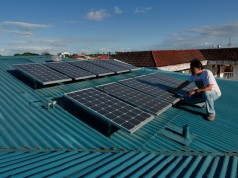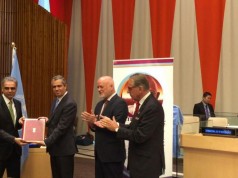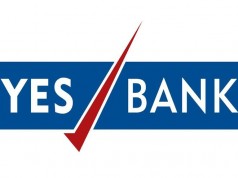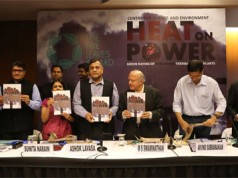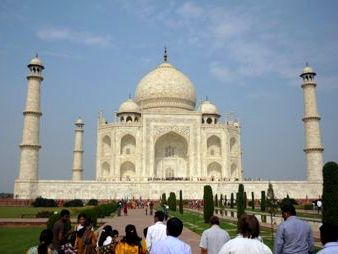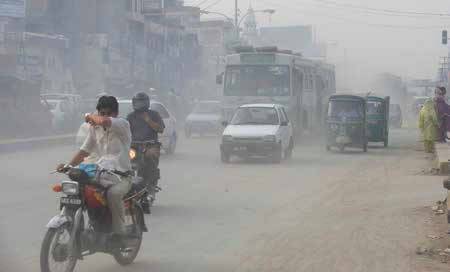
New Delhi, India – As Bharat Stage IV norms for fuels and vehicles come into force from April 1, 2010, in 13 cities of India, the automobile industry is trying its best to delay the implementation of Bharat Stage III norms for vehicles in rest of India.
While the oil industry is phasing in the supply of Bharat Stage III fuels, the automobile industry wants deferment of the emissions standards for vehicles until the final date of phase-in of the fuel, which is October.
This is clearly not acceptable, says Centre for Science & Environment (CSE), as it will significantly delay the introduction of Bharat Stage III vehicles in the country, allow the industry to continue investing in outdated Bharat Stage II technology, create an enormous inventory of unsold Bharat Stage II vehicles that will continue to roll in the market much after the deadline, and add to the already severe pollution problem in our cities.
Says Anumita Roychowdhury, head of CSE’s air pollution team, “The government must make both the automobile industry and the oil companies follow the same phase-in schedule for Bharat Stage III fuels. Sixteen key states, except Karnataka, Bihar, Jharkhand and the north-eastern states, will have Bharat Stage III fuels by June and they must not be deprived of the benefits of improved vehicle technology and fuel quality.”
Over 2009-2010, the demand for petrol in the country has increased by 14 per cent. This indicates the rapid growth in numbers of personal vehicles and the urgent need, therefore, of emissions cuts. The Bharat Stage IV emissions standards will cut emissions by half from new vehicles, while Bharat Stage III standards are expected to reduce emissions by about 38 per cent from Bharat Stage II levels.
The availability of cleaner fuels will also reduce emissions from the large fleet of in-use vehicles that are already plying on the road. Most significantly, the sulphur content in Bharat Stage IV diesel and petrol will reduce to 50 ppm and in Bharat Stage III diesel and petrol to 350 ppm and 150 ppm, respectively. Sulphur in fuel contributes to the formation of particulate matter that has serious health consequences.
CSE, therefore, has urged the government not to give in to the industry’s pressure and implement the new standards with utmost urgency and stringency to be able to meet the pollution reduction objectives in cities. Simultaneously, the government must work towards the post-2010 roadmap for uniform introduction of Bharat Stage IV standards across the country and set the timeline for Euro V/VI emissions standards for both oil and automobile sectors, to enable them to plan in advance.
Phase-wise schedule for introduction of Bharat Stage III petrol and diesel from oil marketing company locations:
- Goa: Petrol 1 April 2010; Diesel 1 April 2010
- Chhattisgarh, Madhya Pradesh, Maharashtra: Petrol 1 June 2010; Diesel 1 June 2010
- Haryana, Himachal Pradesh, Punjab, Rajasthan, Chandigarh, Uttaranchal, Western UP, Andaman & Nicobar, Orissa, Sikkim, West Bengal, Gujarat, UT of Dadar Nagar Haveli and Daman and Diu, Andhra Pradesh, Tamil Nadu, Puducherry: Petrol 1 July 2010, Diesel 1 July 2010
- Jammu and Kashmir*: Petrol 1 July 2010; Diesel 1 July 2010
- Karnataka: Petrol 1 August 2010; Diesel 1 August 2010
- Eastern UP, Bihar and Jharkhand: Petrol 1 October 2010; Diesel 1 July 2010
- Arunachal Pradesh, Assam, Manipur, Meghalaya, Mizoram, Nagaland, Tripura, Kerala, and UT Lakshadweep: Petrol 1 October 2010; Diesel 1 October 2010
Note: Supplies of BS III Petrol / Diesel to location fed from Leh and Kargil in Jammu and Kashmir state, which are open only during May to September of the year, would commence from 1.10.2010, as replenishments to these areas can start only from mid May, 2010.
Source: CSE India.

